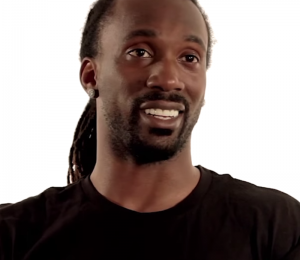
“Big Church Cloud” By John Bunting; CC 2.0
A rare but wonderful thing is when you can theologically debate with someone who truly understands the opposing side of the argument and is honest about the inconsistencies of their own views. This applies to theological discussions but also to discussions in work, family, and especially marriage settings. When we can be honest with ourselves about our views and reasoning, the truth usually comes out. I’ll admit, I fail more often than not when I’m trying to maintain this fair and honest position. Especially when it comes to theology and work of Christ the conversation can get elevated. Lord willing, I trust this is something I will get better at with age.
However, this post is not about me, directly anyway. It’s about the most consistent arminian with whom I have discussed theology. It’s also about how we must be very careful of the image we make of God versus what scripture clearly teaches.
This conversation took place a number of years ago, the fall of 2005 to be exact. A well known arminian professor was speaking at Dallas Baptist University over arminian and calvinistic theology. He was presenting both views and then comparing and contrasting. I am purposely withholding his identity. The session was billed as “Arminianism and Calvinism: Common Ground and Divergent Perspectives.”
Given that it’s been over 10 years, I will do my absolute best to recall the verbiage accurately and honestly.
Professor _____ began by presenting the general theology of both camps; very accurately I might add. In fact, he did a better job representing calvinism than many calvinists I know! He spent a fair amount of time comparing and contrasting and really trying to build some bridges between the camps by focusing on common ground issues. He was kind. He was generous and he was welcoming to difficult questions. It was during in the Q&A that things got a little more interesting.
A few questions asked were related to the problem of evil in the world. More specifically, is God sovereign when terrible things happen in our world? Professor _____ casually responded and explained potential differences in “permitting evil” and “doing evil”. He elaborated on each groups different points while clarifying where he stood in the arminian camp.
Then, he was asked (presumably by a calvinist) about the theological position of men like Jonathan Edwards and how they interpreted the place of evil in the world. The young man referenced the verse Romans 9:21-23, “21 Has the potter no right over the clay, to make out of the same lump one vessel for honorable use and another for dishonorable use? 22 What if God, desiring to show his wrath and to make known his power, has endured with much patience vessels of wrath prepared for destruction, 23 in order to make known the riches of his glory for vessels of mercy, which he has prepared beforehand for glory” (ESV).
To provide a little background, Edwards believed that all things exist and function to bring glory to God. Evil is no exception. Consider these words from Jonathan Edwards on the topic:
“…It is proper that the shining forth of God’s glory should be complete; that is, that all parts of his glory should shine forth, that every beauty should be proportionably effulgent, that the beholder may have a proper notion of God.
Thus it is necessary, that God’s awful majesty, his authority and dreadful greatness, justice, and holiness, should be manifested. But this could not be, unless sin and punishment had been decreed; so that the shining forth of God’s glory would be very imperfect, both because these parts of divine glory would not shine forth as the others do, and also the glory of his goodness, love, and holiness would be faint without them; nay, they could scarcely shine forth at all.
If it were not right that God should decree and permit and punish sin, there could be no manifestation of God’s holiness in hatred of sin, or in showing any preference, in his providence, of godliness before it. There would be no manifestation of God’s grace or true goodness, if there was no sin to be pardoned, no misery to be saved from. How much happiness soever he bestowed, his goodness would not be so much prized and admired. . .
So evil is necessary, in order to the highest happiness of the creature, and the completeness of that communication of God, for which he made the world; because the creature’s happiness consists in the knowledge of God, and the sense of his love.” (The Works of Jonathan Edwards, Vol 2)
At this point Professor _____ , paused and thought for a moment and replied, “If you read the bible with the framework and theology of Jonathan Edwards, or John Piper, then the entire bible makes perfect sense from cover to cover. However, I cannot agree with Edwards because how I view the nature of God does not allow for this kind of interpretation. For me, this is mystery that I will understand when I am in heaven”
I was floored.
In so many words, one of the leading arminian theologians in the world seemed to say that though the bible appears to hold a consistent view on an issue he refuse to believe it. It wasn’t long after that that the symposium ended. In retrospect, I wish I had stopped and talked to him about his comment. Perhaps, there was something else he would like to add or clarify. But as it is, I am left to be oddly thankful for the honesty related to his inconsistencies with scripture and appalled at his willingness to openly deny what the whole of scripture seems to teach.
As Christians, we are to mold our lives and theology to the teachings of scripture and not the other way around. While I do not think this was what Professor _____ intended to do, there is a significant danger in making God the way you want Him to be. You create an idol. You are worship God not as He is but as you want Him to be. It’s been my experience that those who try and manipulate scripture to fit their idea of God, often create a “god” that is oddly similar to themselves. God becomes passionate about the things they are passionate about. God tends to become politically sided with their party. God becomes a cause for war and violence. God becomes a tool to achieve a personal agenda.
We must all examine our lives and theology to make sure it is in line with holy scripture. If something is written that we don’t like or makes us uncomfortable then we have to deal with that. Often times we have to wrestle with scripture. That’s OK. God is not afraid of hard doctrine or hard questions, ask them.
It should be worth saying again, that I don’t think Professor _____ was intentionally misleading or manipulating the scriptures. He appeared (to me anyway) to be following his theology out to what he believed to be it’s logical conclusion, despite his inconsistencies.
Brothers and sisters in Christ, we must let scripture and sound doctrine slowly penetrate our minds and souls so that we are not trying to change God, but rather, God is changing us. This is why some say we are reformed and always reforming.



